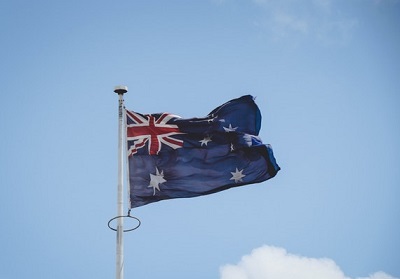• Labor acknowledges financial sustainability challenges facing local governments
• Opposition matches Government commitments on Roads to Recovery, Bridges funding
• $260m promised for cycle paths can spur healthier local communities
The President of the Australian Local Government Association (ALGA), Mayor David O’Loughlin, has welcomed the Australian Labor Party’s commitments under the Plan for Local Government issued by the Opposition today.
ALGA outlined its Federal Election priories in its election document All Politics is Local, issued in September last year, well in advance of the election.
It identified 12 priorities including restoring funding assistance to local government, improving the safety of local roads, national leadership on waste and recycling, initiatives to address climate change, as well as greater commitment to Indigenous well-being.
In its Plan, the ALP has matched the Government’s funding commitments to Roads to Recovery, Bridges Renewal community infrastructure, regional telecommunications and Financial Assistance Grants, but has gone further in its commitment to provide $260m in funding for cycle paths.
“The infrastructure commitments by the ALP will reassure councils that the increases in base level funding for essential programs such as Roads to Recovery and Bridges Renewal announced in the Budget will be met,” Mayor O’Loughlin said.
“This certainty is vital to councils’ budgeting processes”.
ALGA has also welcomed the commitment to strengthen Australia’s circular economy by establishing a National Waste Commission and investing $60m in a national recycling fund.
“Waste and recycling has emerged as a major challenge facing all councils and the ALP commitment to greater national leadership is something the local government sector and communities have been crying out for.”
ALGA is also pleased by the ALP’s promise of $62m for climate adaption and coastal rehabilitation. The Association has called for a program to support communities with their climate change responses.
Mayor O’Loughlin also responded positively to the funding commitment to help to address housing and employment issues in Indigenous communities.
“ALGA has called for both parties to continue providing funding for the National Partnership Agreement on Remote Indigenous Housing,” he said.
“While neither party has fully committed to that need, the ALP has gone further than the Coalition in providing funding for the NT, Queensland, WA and South Australia”.
The ALP’s Plan also contained some positive recognition of the financial sustainability challenges local governments have faced for more than two decades.
Since 1996 the level of funding assistance provided to local government by the Commonwealth government through the Financial Assistance Grants has fallen to just 0.55% of Commonwealth Taxation revenue from 1%.
At the same time, local governments have been subject to cost-shifting and rate-capping by state governments.
Labor has committed to working with local, state and territory government with the aim of reaching an agreement on the financial sustainability of local government.
“While both major parties have yet to respond to ALGA’s call to provide a fairer level of funding to local communities through the restoration of Financial Assistance Grants funding, the ALP’s commitment to seek an agreement across the three levels of government to address local governments’ financial sustainability is progress,” Mayor O’Loughlin said.
Media enquiries:
Paris Lord, Director Public Affairs, Australian Local Government Association (ALGA), 0418 415 649, 02 6122 9434, paris.lord@alga.ans.au
Available for interview:
Mayor David O’Loughlin, President Australian Local Government Association (high resolution head shot available at this Dropbox link)



